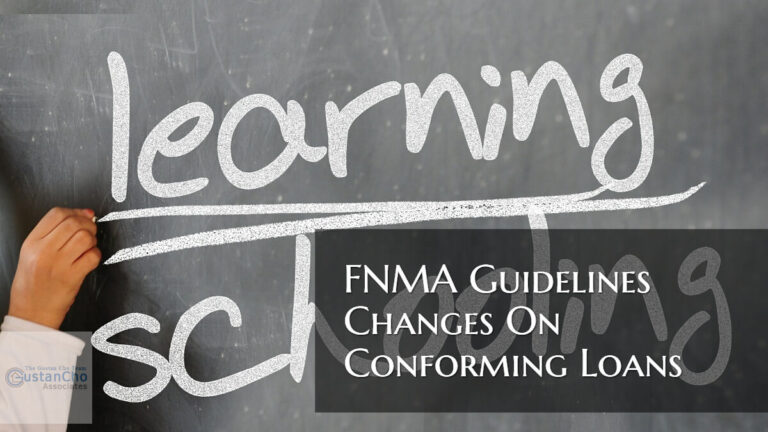FHA Versus Conventional Loan Comparison
In this article is about the benefits of FHA versus conventional loan comparison. We will cover the various benefits of FHA versus conventional loan programs. Two of the most popular mortgage loans are FHA loans and Conventional loans. VA loans and USDA loans are excellent mortgage loan products. Not everyone can qualify for VA loans and USDA loans. VA loans require mortgage loan applicants who are veterans of the United States military with a valid Certificate of Eligibility in order to qualify with the 100% financing VA loan program.
There are two types of traditional conforming mortgage loan types: Government-backed loans and conventional loans. There are many benefits for each of the types of mortgage loan types. Conventional and FHA loans are the two most popular mortgage loan program in the nation. Conventional loans are not backed or insured by any government agency. FHA loans are best suited for first-time homebuyers, and borrowers with less than perfect credit. Conventional loans are for higher credit borrowers who would like to eventually eliminate their private mortgage insurance on their conventional loan.
USDA requires that the subject property be in a USDA approved area. Borrowers on USDA loans need to meet certain maximum income requirements. FHA Loans are for everyone who qualifies and so are conventional loans. Both FHA and Conventional loan programs have their own unique lending guidelines. We will compare FHA versus Conventional loan programs in this article.
Credit Score Benefits Of FHA Versus Conventional Loan
The minimum credit scores required for a 3.5% down payment FHA loan is 580. HUD, the parent of FHA, allows borrowers with credit scores down to 500 FICO to be eligible for an FHA loan. However, if your credit score is under 580, you need a 10% down payment on a home purchase.
FHA and Conventional loans are the two most popular mortgage loan program in the nation. FHA loans only for owner-occupant primary homes only. You cannot finance a second home or investment property with an FHA loan. You can finance a second home and investment home with conventional loans.
Minimum credit scores required for a 3% down payment conventional loan is 620 credit scores for first-time homebuyers. A first-time homebuyer is defined as a homebuyer who did not have ownership in a home in the past three years. Otherwise, homebuyers need a 5% down payment on a home purchase. Minimum down payment requirements for an FHA loan is 3.5% down payment on a home purchase. Minimum of 580 credit score is required for 3.5% down payment home purchase FHA loans.
What Is The Lowest Credit Score For an FHA Loan?
Borrowers with a credit score of under 580, then the minimum down payment is 10% down payment on a home purchase. There is a minimum down payment of 3% down payment for first time home buyers on conventional loans.
The lowest credit score you can have to qualify for an FHA loan is 500 FICO. However, if your credit scores are under 580 FICO, you need a 10% down payment.
Definition of first time home buyers is someone who did not own a property in the past three years to qualify for a conventional mortgage loan. For seasoned and veteran home buyers, the minimum down payment on a conventional loan is a 5% down payment on a home purchase.
Mortgage Insurance Benefits Of FHA Versus Conventional Loan

HUD requires a one time upfront mortgage insurance premium. Besides the one time FHA UPMIP, there is a lifetime annual mortgage insurance premium of 0.85% for the life of a 30 year fixed rate FHA loan no matter what the loan to value is. Conventional loans, there is no private mortgage insurance required if the homeowner has at least a 20% down payment or 80% loan to value. Any conventional loans with a loan to value of 80% or greater, private mortgage insurance is required.
One great benefit on conventional versus FHA loans is private mortgage insurance is not mandatory for the life of a 30-year fixed-rate mortgage loan. FHA loans require a one time upfront 1.75% FHA mortgage insurance premium and a 0.85% annual FHA mortgage insurance premium for the life of the FHA loan term. Conventional loans only require private mortgage insurance until the house has 20% equity.
Conventional loans require private mortgage insurance on homes that do not have at least 20% equity or 80% loan-to-value. The private mortgage insurance is substantially less than the FHA mortgage insurance premium for higher credit score borrowers. However, for lower credit score borrowers, private mortgage insurance on conventional loans may be substantially higher than FHA MIP. Conventional mortgage lenders will allow homeowners to cancel the private mortgage insurance once the loan to value reaches the 80% loan to value mark.
Waiting Period After Bankruptcy And Foreclosure on FHA Versus Conventional Loan
FHA waiting period after bankruptcy is a two-year waiting period after the discharge date of Chapter bankruptcy. FHA loan waiting period to qualify for an FHA loan after a foreclosure or deed in lieu of foreclosure is three years from the recorded date of the deed which is reflected on the recorder of deeds office.
The waiting period guidelines after bankruptcy and foreclosure is shorter on FHA versus Conventional loan. HUD, the parent of FHA has the same waiting period guidelines after a housing event (foreclosure, deed-in-lieu of foreclosure, short sale) versus conventional loans. Conventional loans has different waiting period requirements on short sale and deed-in-lieu of foreclosure versus a standard foreclosure.
There is a mandatory 3 year waiting period from the date of a foreclosure, deed-in-lieu of foreclosure, or short sale in order to qualify for an FHA loan. Fannie Mae and Freddie Mac require a four year waiting period after Chapter 7 Bankruptcy, deed-in-lieu of foreclosure, or short sale. There is a seven year waiting period after a standard foreclosure on conventional loans. There is a two year waiting period after Chapter 13 discharge date and four year waiting period after Chapter 13 Bankruptcy dismissal date to qualify for conventional loans.
What Is a Housing Event Per HUD Guidelines
The following is called a housing event:
- foreclosure
- deed in lieu of foreclosure
- a short sale is no longer in effect
Apply Today For a FHA or Conventional Loans
Conventional Loans After Bankruptcy And Foreclosure

With conventional loans there is a four year waiting period after the discharge date of Chapter bankruptcy to qualify for a conventional loan. There is a four-year waiting period to qualify for conforming loans after Chapter 13 Bankruptcy dismissal date. The waiting period is two years after Chapter 13 discharged date. There is a four year waiting period after a deed in lieu of foreclosure or short sale to qualify for a conventional loan. There is a seven-year waiting period after foreclosure to qualify for a conventional loan.
FHA Versus Conforming Guidelines With Mortgage Part Of Bankruptcy
Borrowers who had a mortgage part of bankruptcy, the waiting periods are very different from FHA versus Conventional loans. If the mortgage was part of Chapter 7 bankruptcy, the waiting period to qualify for FHA Loan starts from the recorded date of foreclosure after the bankruptcy discharge date. This holds true even though the mortgage loan balance was discharged in bankruptcy.
The great benefit on conventional loans is the waiting period to get a new mortgage if you had a prior mortgage included in bankruptcy is four years from the discharge date. Government loans do not have the same guidelines. Government loans go by the recorded date of the housing event if you had a prior mortgage included in the bankruptcy. Therefore, the recorded date of the housing event will come after the discharge date of the bankruptcy so the waiting period will be longer.
With conventional loans, if the mortgage was included in the bankruptcy, the waiting period to qualify for a conventional mortgage starts from the date of the bankruptcy discharge date. So if someone had a mortgage included in Chapter 7 bankruptcy and the deed of the home did not get recorded two years after the discharge date, the waiting period will be four years from the discharge date of bankruptcy. The housing event date does not matter.
Agency Versus Fannie Mae Guidelines On Deferred Student Loans
With the exemption of VA loans, all other loan programs no longer allow deferred student loans that has been deferred longer than 12 months to be exempt from debt-to-income ratio calculations.
FHA, USDA, and Conventional loans no longer allows monthly student loan payments that are deferred at least 12 or more months to be exempt from the calculations of debt to income ratios. VA loans do not allow this exemption and will not count monthly student loan payments in calculating debt to income ratios even if the student loan is deferred for longer than 12 months.
If student loans are not deferred and the borrower does not know what the monthly payments are, the Department of Veterans Affairs requires the following:
- Take 5.0% of the outstanding student loan balance
- Divide that figure by 12 months
- The resulting number will be the hypothetical monthly student loan payment used in DTI Calculations
Borrowers who cannot get an exact monthly payment from the student loan provider, 0.50% of the outstanding student loan balance will be used as hypothetical monthly student loan payment. This figure will be used in calculating monthly student loan payments.
Get an IBR Payment Plan or Fully Amortized Hypothetical Monthly Payment on Student Loans
FHA and Conventional loans both now accept income-based repayment for debt-to-income ratio calculations on student loans. See if you can get an IBR payment plan that cannot be zero but at least $1 dollar per month. Also, if you cannot get an IBR payment for one reason or another, the second option is to get a hypothetical extended amortized monthly payment schedule in writing from the student loan provider. How HUD accepts student loan payments is the following:
Contact the student loan provider and use the following verbiage:
- I am applying for a mortgage
- My lender needs a hypothetical monthly payment that is fully amortized over an extended term
- This term is normally 25 years but the longer the better
- This figure normally turns out to be 0.40%
- This figure needs to be in writing which takes two to five business days to get
- Mortgage underwriters can use this figure in lieu of the 0.50% of the student loan balance
Conventional loans does accept Income-Based Repayment (IBR) on federal student loans as long as it reports to all three credit bureaus. If it does not report, we can do a rapid rescore and credit supplement which normally takes three to five business days.
FHA Versus Conforming Guidelines On Non-Occupant Co-Borrowers And Gift Funds
HUD allows a non-occupant co-borrower to be added on loan to qualify for income. HUD will permit for borrowers to add non-occupant co-borrowers on 3.5% down payment home purchase loans if the following can be met. Non-Occupant Co-Borrowers needs to be related to the main borrower by blood, marriage, or law such as the following:
- Parents and step-parent
- Grandparents and step-grandparents
- Brothers and sisters
- Stepbrothers and sisters
- In-Laws
- Children and grandchildren
- Stepchildren and grandchildren
If non-occupant co-borrowers are not related to main borrowers by law, marriage, blood, then 25% down payment is required. Fannie Mae and Freddie Mac allow non-occupant co-borrowers but they do not have to have any relations to main borrowers. VA and USDA only allow co-borrowers to be added however they need to be married to main borrowers. FHA allows 100% gifted funds to be used for the down payment on a home purchase. Other loan programs also allow for gifted funds.
FHA Versus Conventional Loan On Debt-to-Income Ratios
The maximum debt-to-income ratio caps on conventional loans is capped at 50%. Benefits Of FHA versus Conventional loan is it allows higher debt-to-income ratios. FHA has front end DTI cap at 46.9% and maximum back end debt to income ratio cap at 56.9% to get an approve/eligible per AUS. For homebuyers who have great credit but higher debt to income ratios, FHA may be the route to take on a home purchase loan.
VA loans are the best mortgage loan program in the nation. However, only veterans with certificate of eligibility are eligible for VA loans.
VA does not require a minimum credit score and does not have a debt to income ratio cap. USDA requires a 29% front end and 41% back end debt to income ratio cap. Homebuyers who need to qualify for a mortgage with a mortgage broker with no lender overlays, please contact us at FHA Bad Credit Lenders at 800-900-8569 or text us for a faster response. Or email us at gcho@gustancho.com. We have zero overlays on government and conventional loans.
This BLOG On Benefits Of FHA Versus Conventional Loan was updated on January 17th, 2023









